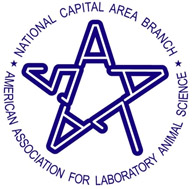Strengthening Oversight: Effective Post-Approval Monitoring in Animal Care and Use Programs
Post-approval monitoring (PAM) can be a valuable resource for animal care and use programs when used effectively. This workshop will explore how PAM supports compliance with approved protocols, enhances animal welfare, and fosters a culture of collaboration and continuous improvement. Participants will examine the key elements of a successful PAM program, including protocol review, direct observation, documentation practices, and communication strategies. Through case studies and interactive discussions, attendees will learn how PAM can serve as a proactive strategy for education, risk mitigation, and quality assurance. Emphasis will be placed on practical implementation, alignment with institutional goals, and constructive engagement with investigators and research staff.
By the end of this workshop, participants will be able to:
1. Define the purpose and scope of post-approval monitoring (PAM) as it applies to an animal care and use program.
2. Describe key components of an effective PAM program, including planning, implementation, documentation, and follow-up.
3. Differentiate between compliance-driven and quality assurance–oriented approaches to PAM.
4. Recognize common barriers to successful implementation of PAM and learn how to overcome these challenges.
5. Interpret findings from post-approval monitoring and determine appropriate corrective and preventive actions.
6. Engage with investigators and research staff in a constructive and educational manner during post-approval monitoring activities.
7. Integrate PAM into broader institutional oversight efforts, including protocol review, training, and semi-annual evaluations.

**NCAB does not offer refund or transfer of Membership dues. No refunds are available for event registration fees